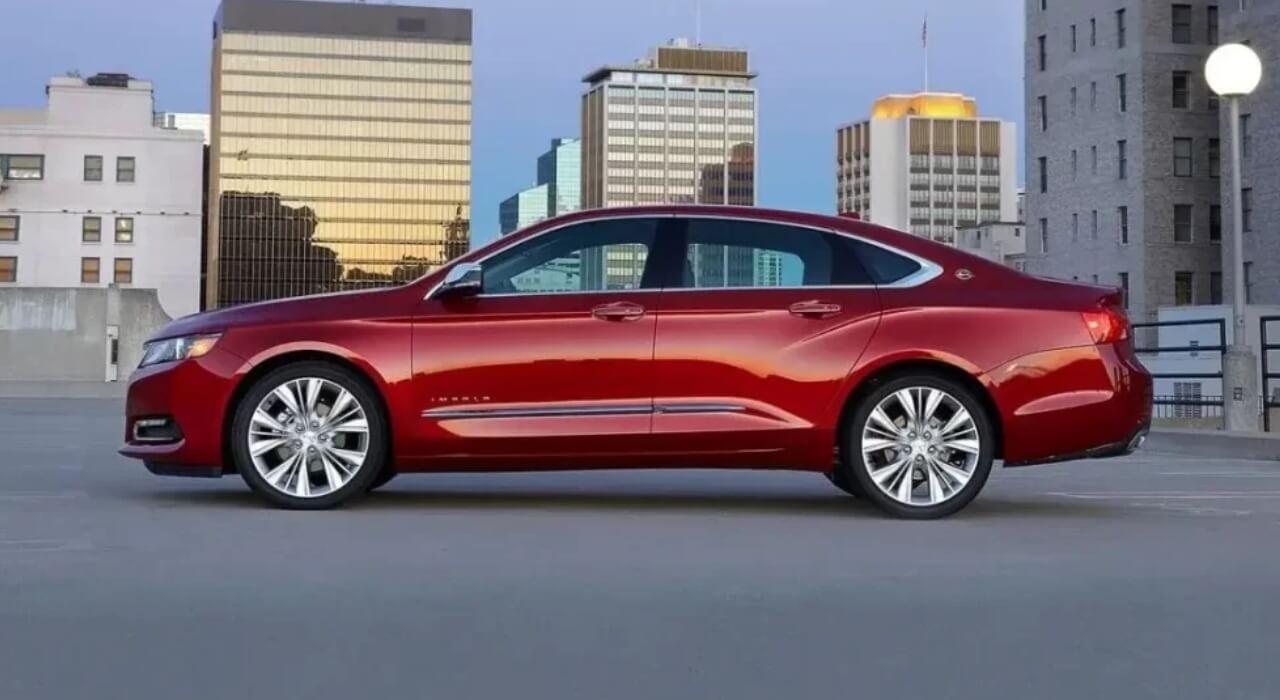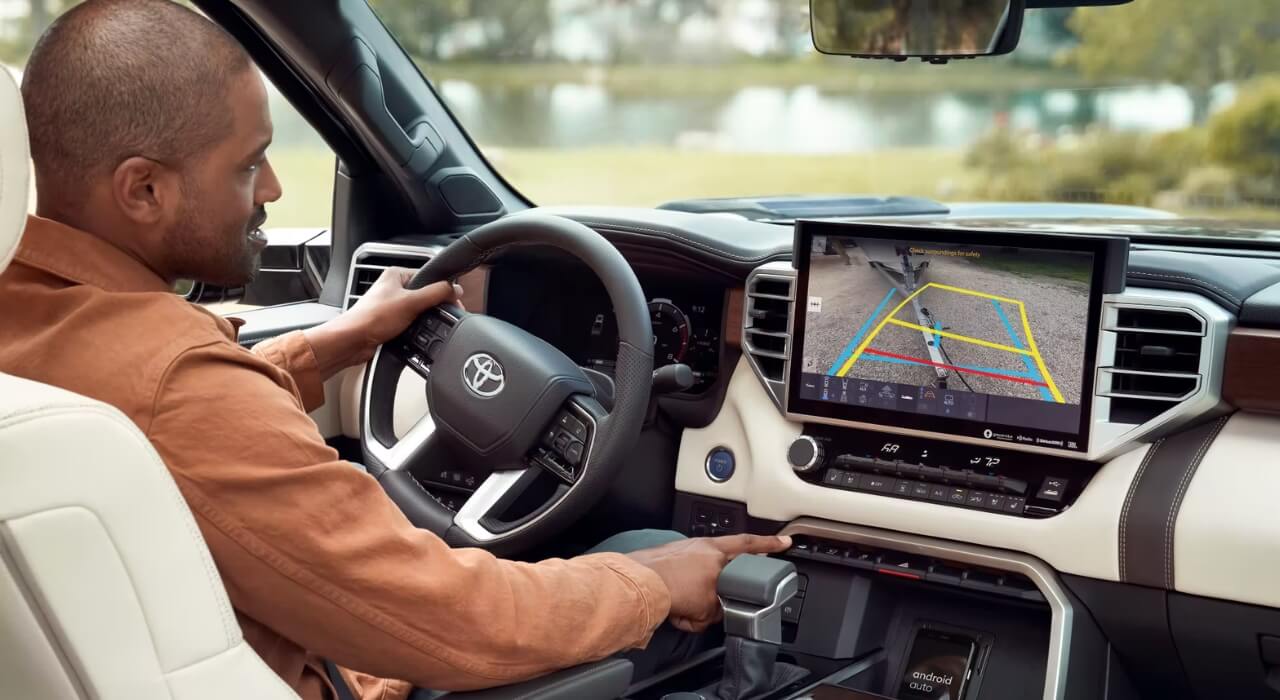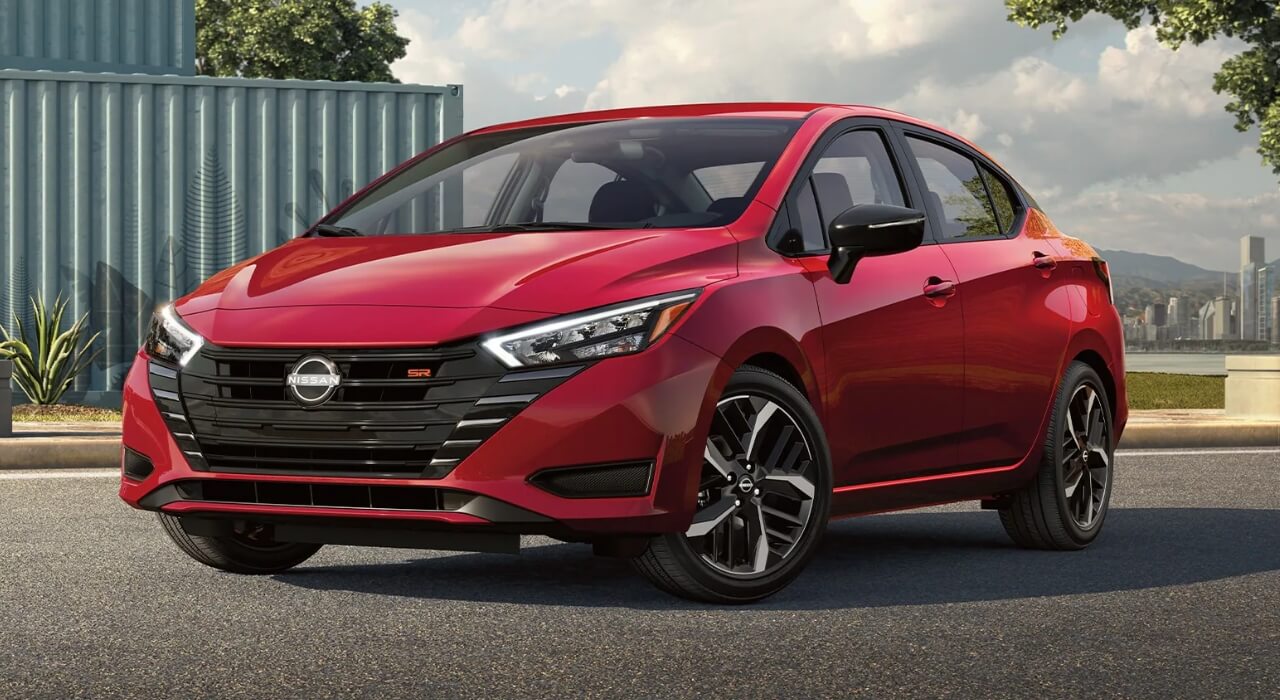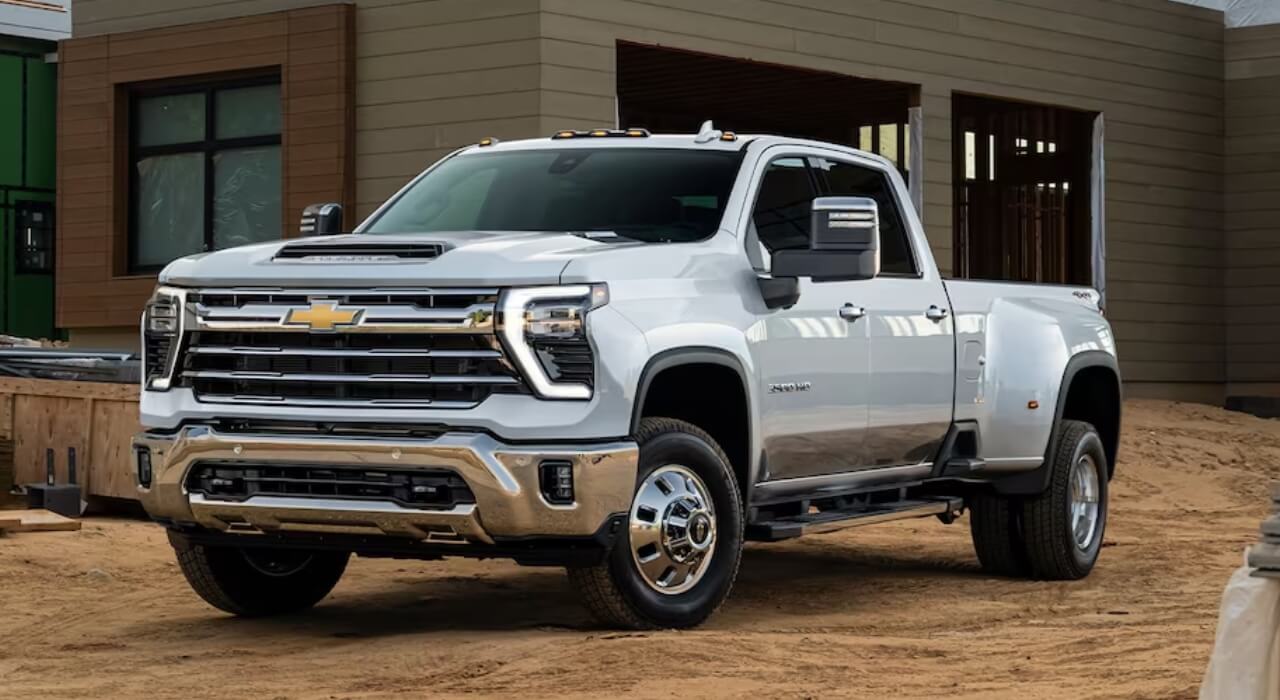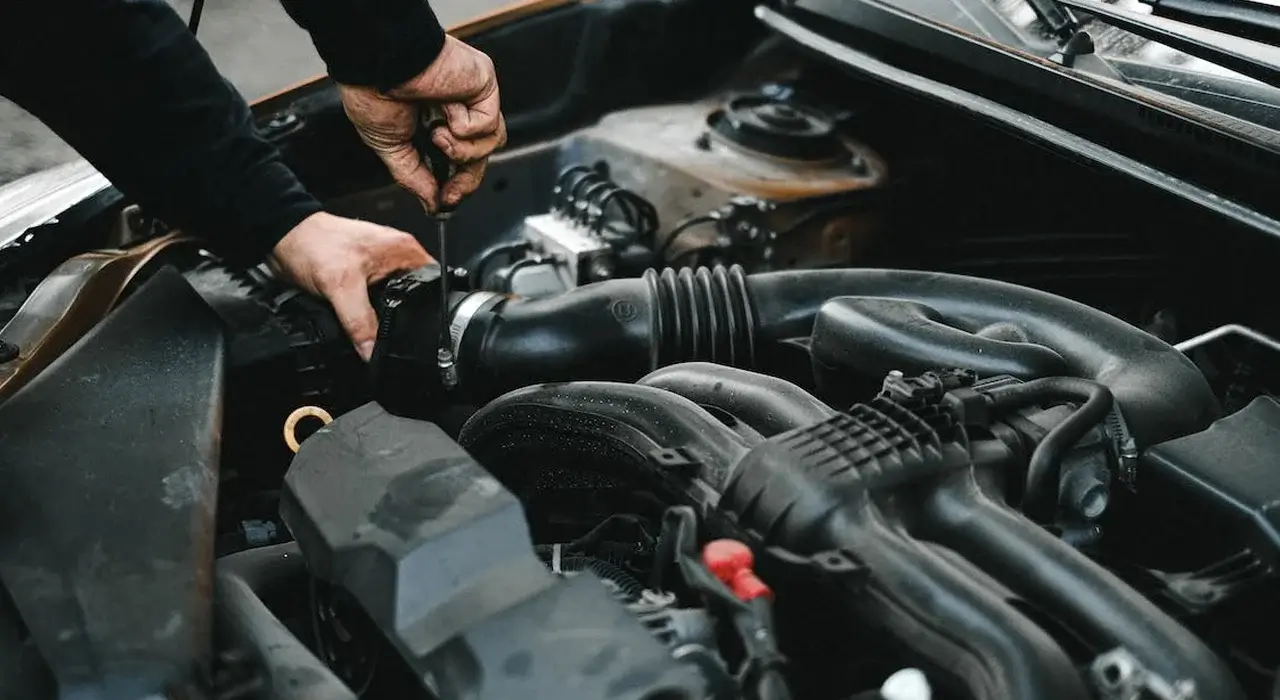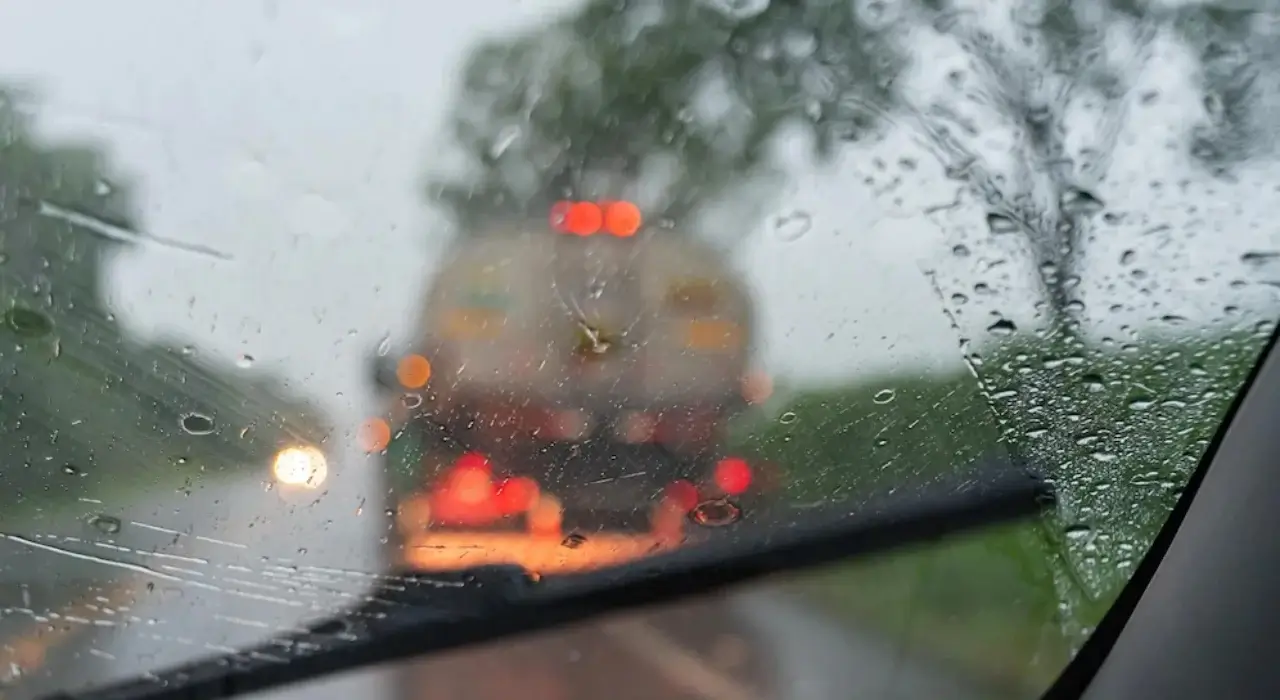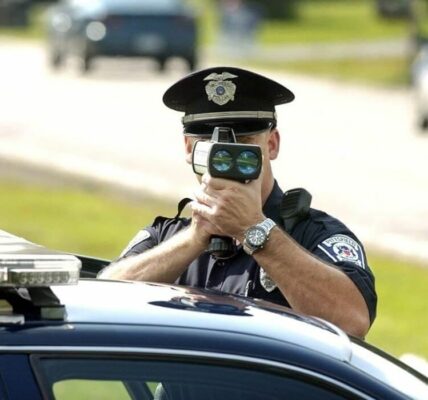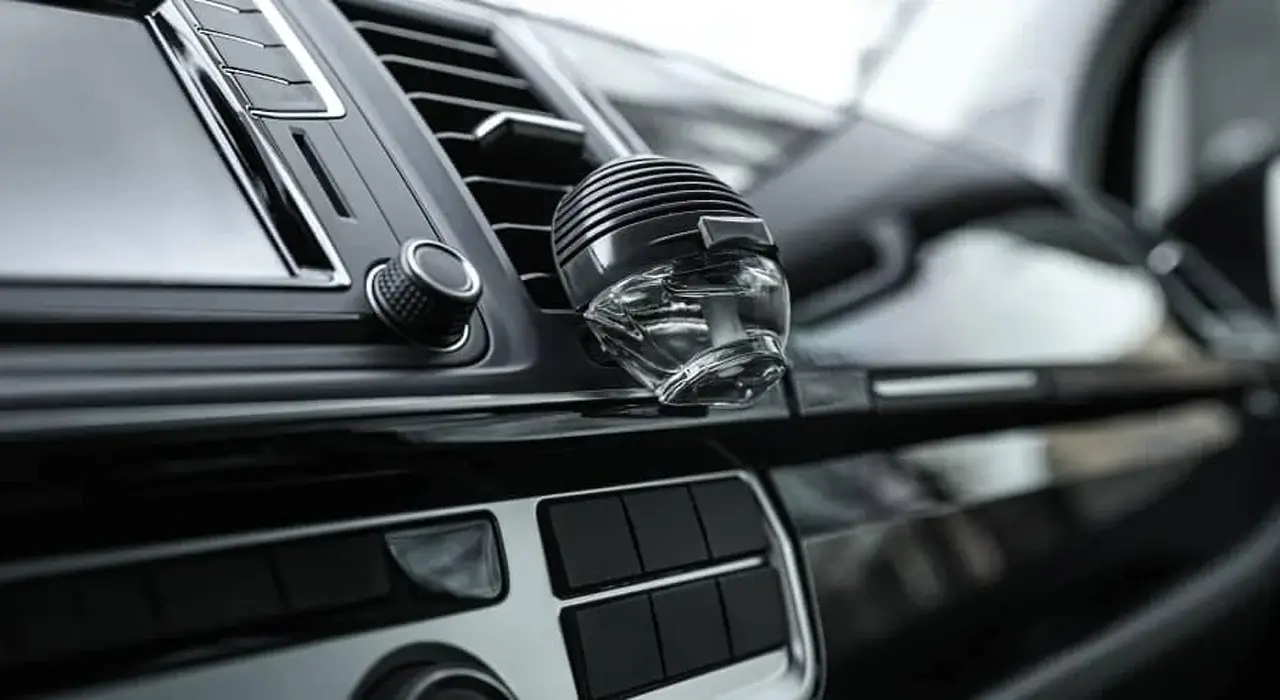There are several reasons why your engine knocks on startup and then goes away. It indicates that your car’s engine has a major problem and you need to identify the problem and fix it immediately. So that your car produces long-lasting performance.
A fully functioning internal combustion engine should not make any unusual noises, especially if it is a loud ticking, knocking, or clicking. If you start hearing strange noises that you don’t normally hear, there are many different possible causes.
Some motorists may ignore this, but for your safety, you should always have your vehicle checked for any unusual noises coming from your engine. As a motorist, you need to know the basics of why your engine rattles when you start it.
The exact type of noise you hear can help narrow down the list of possible causes and pinpoint the problem. Whatever the reason, we will go into detail about it in the following article so that you have a clear idea of what is going on in the car. And give you details about the solution and how to prevent engine rattle on startup from going away in the future. Stay with us!
What is an Engine Knock In a Car?
It would be helpful if you could tell the engine to knock when you hear it. Engine knock is described as an odd “knocking” sound from your car’s engine when you drive it or after starting it. It can also occur when revving the engine.
Instead of the usual deep reverberation heard when starting the car, the knocking of the engine causes a repetitive thud or rattle. This occurs when the combination of air and fuel is incorrect, causing the fuel to burn in erratic pockets instead of bursts.
Suggestion: Why Does My Car Thump When I Am Accelerating or Driving?
Subsequently, the cylinder wall and piston will be damaged if they last longer. In addition, they can also start knocking due to insufficient lubrication in the upper cylinder area.
6 Top Causes Why Engines Rattle On Startup Then Goes Away
A car engine makes its noise, and it’s not always smooth. A vehicle’s engine has many moving parts, and these moving parts create noise and noise.
Of course, these noises are to be expected. But if your brief engine knock/rattle noise at cold startup, here are the possible reasons for the unusual noise.
1. Piston Slap
The rattling noise you hear is due to the knocking of the pistons that occurs when the pistons go in and out of their cylinders. Piston runout manifests as a rattle or knocks coming from the engine.
Loose piston rings usually cause this, but it can also be caused by excessive clearance between the cylinder walls and the pistons. The crankshaft is forced to move with the piston as it goes up and down.
The rotation created by this method is transmitted to your wheels through a drive shaft. A “piston knock” engine noise may be heard when starting or accelerating the engine.
2. Carbon Buildup
Carbon deposits can be another big reason for brief engine knock/rattle noise at cold startup. If your engine is knocking, you should check the oil level and make sure it is full.
Even if you have a low oil level, as long as your car is running, the oil pump can move enough fluid through the system to keep everything lubricated and cool.
Popular For You: 9 Amazing Long Distance Driving Tips For a Safe And Enjoyable Trip
But if there isn’t enough fluid in there, it can cause serious damage over time, including carbon deposits on the pistons that cause constant knocking noises.
If you are having trouble with your vehicle because of an issue with your engine or transmission, you should raise the issue with someone who is knowledgeable immediately.
3. Worn Engine Parts
Worn engine parts can be another reason for loud engine noise on startup. Most of the time it is due to worn engine rings and/or engine bearings that allow metal particles to enter the engine oil, leading to the formation of sludge in the engine.
If you hear an unusual or strange engine noise that doesn’t go away after a few minutes, it’s time to get your car serviced right away.
However, if it disappears, we recommend that you be careful and have it checked so that it lasts a long time.
4. Fuel-Burning Restriction
The vehicle’s gasoline must contain carbon scavengers, but this does not prevent carbon deposits from forming. Gasoline and diesel contain several carbon molecules, which allows their remains to accumulate in valves, spark plugs, and other components involved in combustion.
This reduces the volume in the cylinder and increases the compression. In most cases, this problem can be solved by using a special fuel injector cleaner or additive to remove carbon deposits on engine components. Regular maintenance by a mechanic might also work.
5. Non-Lubricant Cylinder
It is important for lubrication that the upper part of the cylinder head is supplied with oil. If the cylinder head is not properly lubricated in this area, knocking noises due to metal-to-metal contact can be expected.
This is usually the result of loose lifters or valves that may not be receiving the correct amount of oil that they need.
6. Wrong Spark Plugs
Spark plugs not recommended by the manufacturer can cause popping engine noise. They have specific heat ranges and varying degrees of resistance to the higher temperatures drawn from the combustion chamber.
If you use a spark plug that cannot handle the heat from your engine, it will fail. In addition, engine knocking can also occur if the spark plug gap is not properly adjusted. The spark plug gap is where the spark plug burns the air-fuel mixture that powers the car.
How To Fix Engine Knock On Startup that Goes Away?
Engine noise can be caused by knocking on engine pistons or the wear of engine parts. If you hear a knocking sound when you start it, it’s time to have your car checked at a nearby auto repair shop.
As regular engine knocking can be a sign of severe engine damage if the problem is not diagnosed early. Apart from the above things, you should follow these tips to prevent your engine from malfunctioning.
1. Warm Up Engine
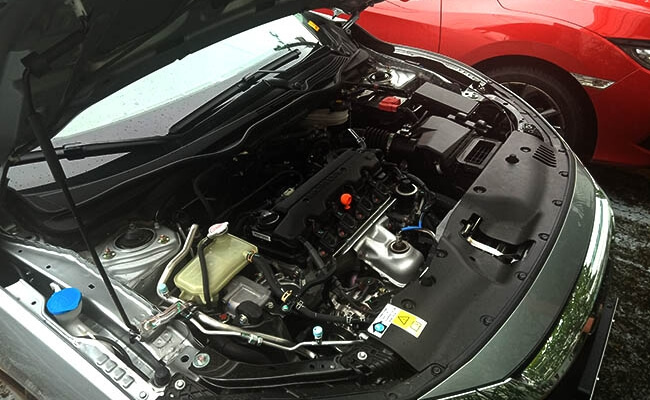
If your engine knocks when you start it and then stalls, you need to spend a few minutes warming up the engine. This is a great idea, especially if you only hear the noise once in a while and not regularly.
Warming up the engine has some advantages, including the warming up of engine components such as the crankshaft, which contracts when it cools down, especially in older vehicles.
Don’t Miss To Checkout: Why Are My Brake Lights Staying On When Car is Off?
It ensures that the components and oil receive enough heat to reach normal operating conditions. The engine is less likely to develop engine knock if the problem is caused by component wear or oil problems.
2. Check the Fuel Filter
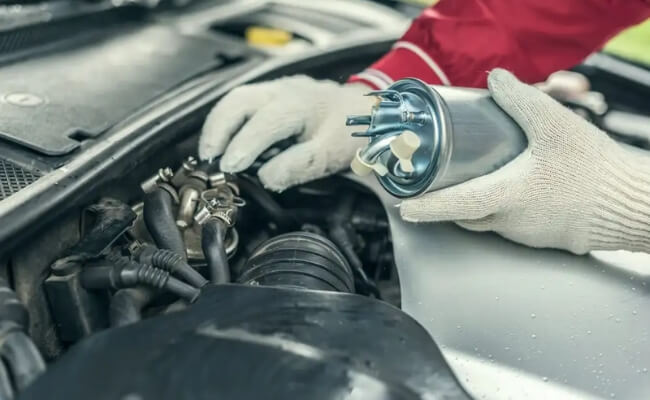
You should also check fuel filter quality before it enters the engine cylinders to keep them clean. You should replace it every 30,000 miles or so. It’s cheap, easy to do yourself, and you’ll avoid big problems later if you take care of it now.
3. Use Compatible Spark Plug
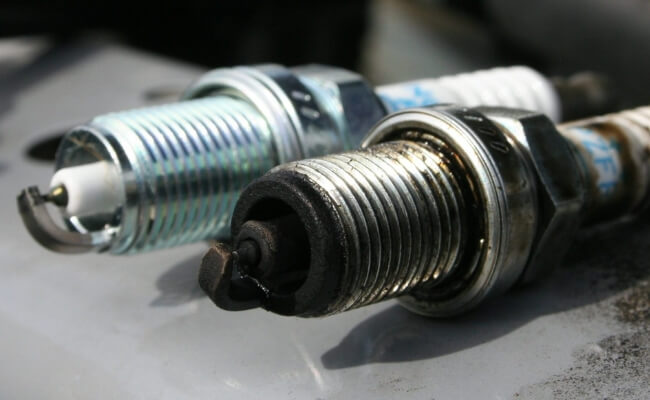
If you still hear knocking noises from your engine, check that you are using the correct spark plugs. To find out, you must first remove the spark plugs, and then note the model numbers stamped on them.
Compare these model numbers with the numbers in your owner’s manual. If the numbers match, you should be fine unless they look really dirty. If the spark plug model number does not match, it is best to replace it with the correct one.
4. Use the Right Quality Engine Oil
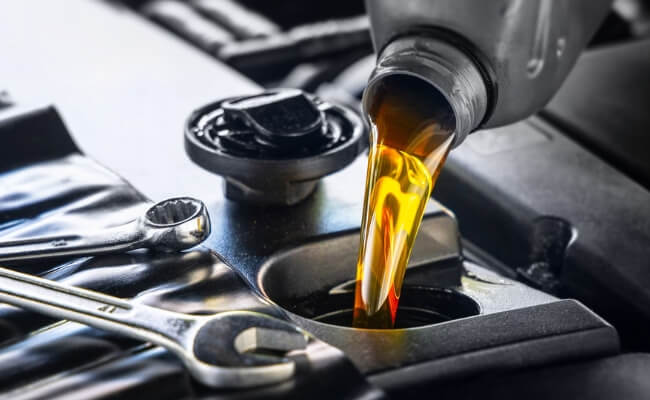
Using good quality motor oil will reduce engine wear. When you start your car, it heats up quickly, which means engine parts expand rapidly and cause friction between metal surfaces.
This can lead to engine damage if proper lubrication is not ensured. Engine oil additives help improve engine performance by reducing heat buildup and increasing the life of engine parts.
Also Check:
Diesel engine oil additives are used to remove engine wear particles, stop engine knocking, and improve fuel economy by removing carbon deposits from engine valves, pistons, and combustion chambers.
Does The Engine Knob On Startup A Bad Sign?
Engine knocking is a nightmare to some degree; can lead to unnecessary costs. It also can cause significant damage to piston surfaces, crankshaft bearings, and cylinder walls.
Because the computer manages the air/fuel ratio, timing, and fuel injectors, engine knock is not a common problem in today’s automobiles.
In addition, newer cars have a knock sensor that detects every engine knock and reports it to the engine control unit, which is then regulated automatically. However, for the good health of your engine, you should not ignore the engine knob.
Top FAQs About Car Makes Noise When Starting Then Goes Away
Engine knocks are loud and often inaccurate sounds, and when they’re being generated by a lot of moving metal parts, they’re probably not a good thing.
Whether it’s an annoying ping, a sustained knock, or a dramatic detonation, it can be traced back to several different sources. This usually results in stinging noise and additional vibrations.
Can you still drive if your engine is knocking?
Knocking noise in your engine is never a good thing. While you can drive your car with it for a while, you don’t want to put off going to the mechanic and getting it diagnosed. The longer an engine goes unrepaired, the more likely it is to sustain permanent damage.
If you can deal with the knocking sound as soon as you hear it, you may be able to replace a part or add lubricant.
What happens if you don’t fix the engine knock?
Sometimes a car engine knocks no matter what we do. If you’ve already done a preliminary damage check, replaced spark plugs, or changed your octane rating, you may need to buy a new engine.
Replacing engines can cost anywhere from $1,000 to $6,000 depending on the make and model of your car. If you’ve had multiple issues with your vehicle or it’s an older model, it may be time to cut your losses and trade it in for a newer model.
You don’t want to invest any money in a car that won’t last much longer anyway.
What could cause a knocking noise in the engine?
In addition to the reasons above, there could be a few reasons why your engine knocks sometimes. One possibility is that you are running the engine too rich or too lean.
If you run the engine too rich, the fuel will ignite prematurely and cause knocking noises. If you run the engine too lean, there won’t be enough fuel to keep the air-fuel mixture from exploding.
Can a wrong spark plug cause a knock?
Yes Since spark plugs help to control the engine’s internal environment and operate under precise conditions, improper spark plugs create poor fuel combustion conditions.
They can lead to deposits in the combustion chamber and impermissible operating temperatures.
How much does it cost to fix an engine rattle?
The cost to repair an engine knock can vary depending on the severity of the problem and the type of repair required. However, on average, it costs around $500 to repair an engine knock.
If your car has a knocking noise caused by a worn piston or connecting rod bearing, you probably need to replace the damaged parts, if not the entire engine. This can cost up to $1,000.
Final Thought
When you hear a popping noise in your car, it is often an indication that something is wrong. This type of problem is difficult to diagnose as the cause can be anything from an overheating engine to worn pistons to carbon buildup.
Fortunately, there are several things you can do if your engine is knocking when starting, such as replacing the oil filter, driving slowly, performing regular maintenance, and replacing worn parts.







